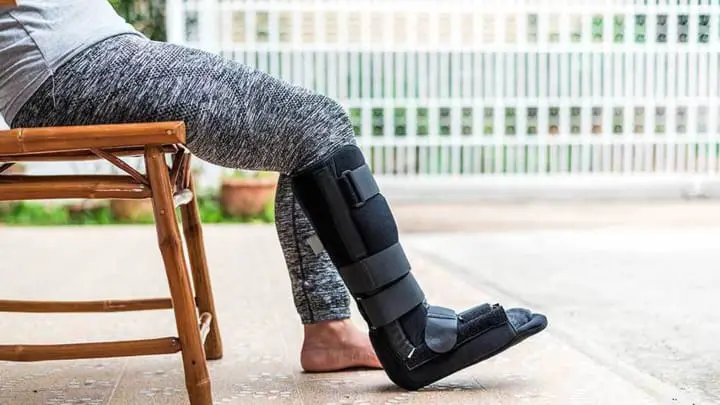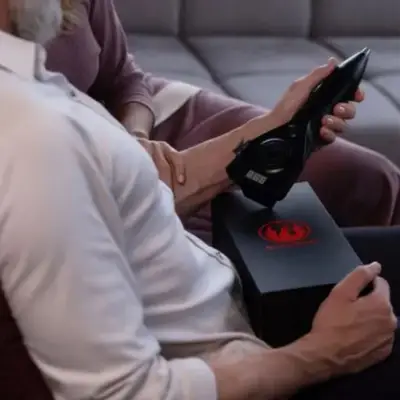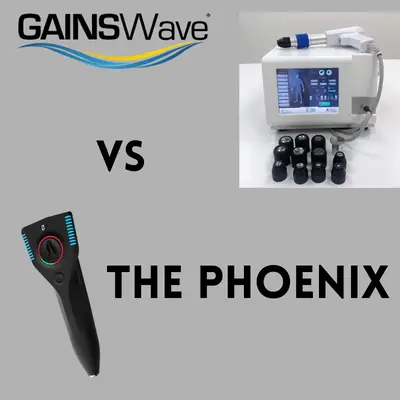Is your plantar fasciitis keeping you up at night? Tired of having that feeling that someone took a baseball bat to the bottom of your feet? Looking for a medication free solution? Continue reading to find out if wearing night splints during sleep may be the answer to your very painful problem.
How Do Night Splints work?
Most of us sleep with our feet pointing down which shortens your Achilles tendon and plantar fascia. Wearing a night splint keeps your foot at a constant 90 degree angle while you sleep. Simply put, a night splint stretches your calf along with the plantar fascia during sleep.
By using a night splint it helps reduce the stress on the foot that causes the inflammation.
Plantar fasciitis is an injury caused by overuse which then causes the plantar fascia to become inflamed. Typically sufferers experience pain upon waking up and it can subside through the day but can flare up once you start walking or any strenuous activity.
Many people that use night splints for their plantar fascia pain experience less pain in the morning and are able to function throughout the day.
If you have a job that requires being on your feet all day and experience plantar fasciitis pain, then using a night splint can definitely help. The night splint provides supportive stretching which you may need throughout your day. They are affordable and easily available online at places like Amazon.
How to use a night splint for Plantar Fasciitis
Although it may seem obvious how to use night splints it is always good to make sure you are doing it right. Check out this video on how to use your night splint. If you are going to use a night splint it is important to use it as prescribed.
*Helpful tip-When wearing the splint you can also put an ice pack on your heel to help reduce the inflammation and pain.
How long do you wear a night splint?
What are the benefits of wearing a plantar fasciitis night splint?
- Drastically reduce pain by stretching the plantar fascia
- Gently stretches the calf without discomfort
- Can be used at night when sleeping so it does not interfere with daily activities
What are the different types of night splints?
There are two types of night splints for plantar fasciitis- Dorsal and Plantar splints.
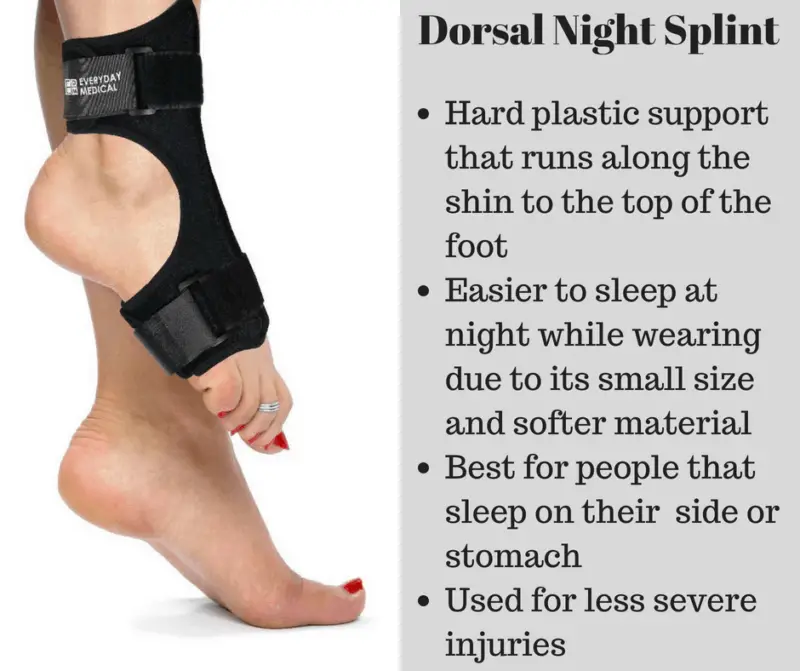
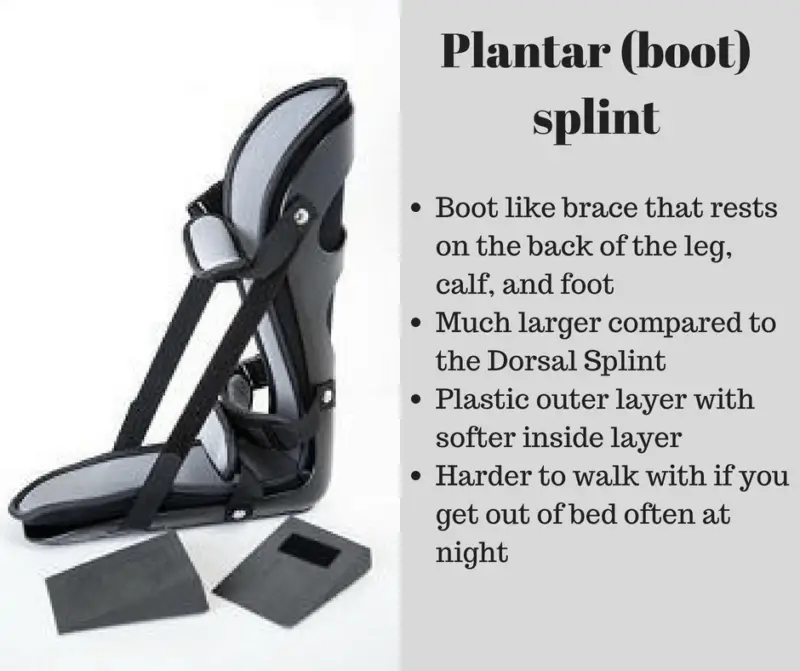
Effectiveness of Night Splints
So you are probably wondering if night splints will even work. It is easy to be skeptical and always a good idea to look into things and research them in order to make a informed decision.
Well, lets take a look at a couple of studies that were done to prove/disprove the effectiveness of night splints for your plantar fasciitis.
The first study is from 1996 where 15 patients were given night splints, ibuprofen and were instructed to do exercises for the plantar fascia.
The results?
After about 12 weeks the doctors discovered that the patients were cured or had significant improvement to pain, plantar fascia tenderness and/or ankle range of motion.
Lets take a look at what the University of Pittsburgh found in their study on whether night splints work for plantar fasciitis.
So they did 3 control groups with 30 people in each group.
Group 1: Used only night splints
Group 2: Only used arch supports
Group 3: Used both night splints and arch supports
The results were very interesting. They found that the patients in control group 3 (both night splints and arch supports) were more of an effective treatment vs control groups 1&2 who just used night splints OR arch supports.
If you want more research to read check out this extensive and in depth paper from J Ortho Sports Physical Therapy Guidelines
Bottom line
Night splints have been proven to work and there really isn’t any downside to trying it out for yourself. They are inexpensive and do not have a laundry list of side effects unlike pain medications.
Want more alternative treatments to your plantar fasciitis that are medication free?
Read about how a TENS unit can help reduce and alleviate the pain- TENS unit placement for plantar fasciitis
Want to know where else a TENS unit can be placed? Check out my TENS placement guide for how to use one for…
Knee Pain
Neck Pain
Shoulder Pain
Tension Headaches
Golfer’s Elbow
Plantar Fasciitis
Rotator Cuff Pain
Restless Leg Syndrome
Ulnar Nerve Pain
TMJ Pain
Thank you for reading.

